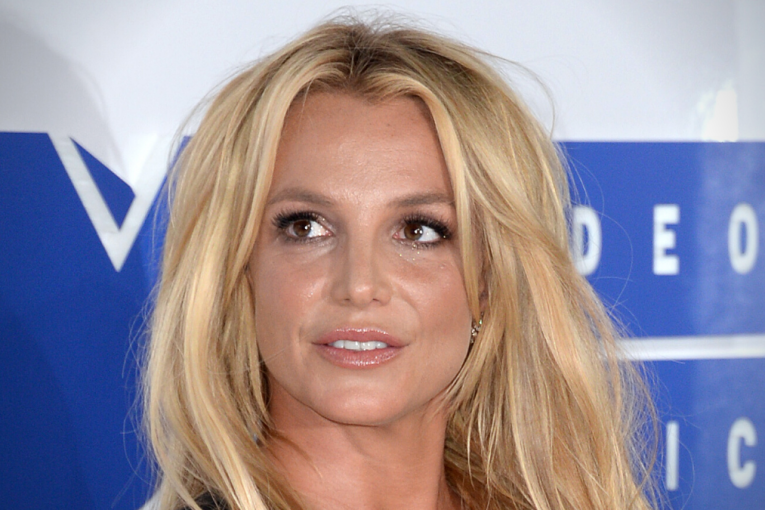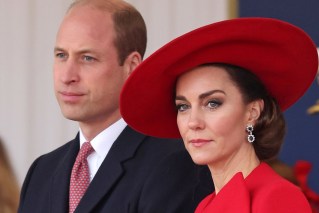Katy Perry cashes in on lucrative music rights business

Eight years ago, when US pop sensation Katy Perry rode atop a giant silver robotic lion onto the arena to headline the 2015 Super Bowl XLIX half-time entertainment in Phoenix, she was at the height of her career.
Performing Roar from her fourth studio album Prism, Perry, now 38, was enjoying global popularity, attracting video streaming hits of more than one billion and embracing a back catalogue of album success with five US record-breaking No.1 hits including California Gurls, Teenage Dream, Firework, E.T., and Last Friday Night (T.G.I.F.).
She was ranked in the top 10 of the highest-paid female celebrities with earnings of $US83 million ($129 million) by Forbes in 2018.
Perry released two more studio albums for Capitol Records, she has a daughter, Daisy Dove, with her partner of seven years Orlando Bloom, is a judge on singing competition American Idol and also has a lucrative Las Vegas residency.
Then the COVID-19 pandemic stopped big arena shows, and musicians could not go on tour and reap the millions in merchandise and box office receipts.
On September 18, Perry sold her music catalogue for an estimated $US225 million ($349 million) – and joined a long and distinguished list of musicians.

Katy Perry in 2009 when her song I Kissed a Girl became a global hit. Photo: Getty
Variety reports she sold her music rights to Litmus Music, a catalogue rights company backed by the global private-equity giant Carlyle Group, “which includes Perry’s stakes in master recordings and publishing rights” for five albums – One of the Boys, Teenage Dream, Prism, Witness and Smile.
The deal follows 28-year-old Canadian singer Justin Bieber’s catalogue sale earlier this year worth $US200 million ($310 million) to Hipgnosis Song Management.
The trend started as the world opened up in 2021, with catalogue sales from Bruce Springsteen, Tina Turner and Paul Simon to investment firms and publishers.
Last year, Bob Dylan’s catalogue of past and future recorded music was sold to Sony Music Entertainment for an estimated $US200 million ($310 million), a year after his songwriting catalogue was sold to Universal Music Publishing Group.
Davie Bowie, Sting, Nancy Wilson and Neil Diamond, among others, also sold their catalogues.
“I think it’s the investment community, the money, waking up to the fact that music is one of [America’s] strongest national assets,” music attorney Lisa Alter told Axios Pro last month.
If an artist’s rights are so valuable, why would they want to sell them?
“The easy answer is timing and convenience,” says music industry professional Ben Higgins in a piece for US website Sheeshmusic.
“There shouldn’t be any need to explain why making money as an artist is difficult … dozens of years of hard work for these world-renowned musicians may not create as much income as you’d expect, with every pay cheque taking a massive cut to the cogs of the industry.
“By selling their catalogues, these artists get a clean payout that they can utilise to build their retirement and estate plans, liquidate the value of their creations, or release themselves from the financial pressure to tour their music.
“What these investment companies really have that the artists don’t is the time and patience to wait for the long-term returns of publishing ownership.
“If artists undersell the value of their catalogues but don’t have to deal with decades of slow gains, it starts to make sense why so many artists are accepting these deals,” says Higgins, an artist and repertoire (A&R) co-ordinator with the catalogue team at Universal Music Group.

Tina Turner sold her music rights to BMG for an estimated $US68 million. Photo: Getty
CelebrityAccess‘s Larry LeBlanc asked Alter what was driving the trend in an interview last year.
A ripple effect of so many deals happening? Pending changes in capital tax laws? Is it because streaming is driving music income?
New licensing opportunities or an increased interest in estate planning as some of these creators grow older?
“It’s all of that, honestly,” Alter replied.
“I think that what came first was the coming together of the financial community, and the traditional publishing community in different ways.
“So whether it’s traditional publishers who have private equity, credit financing, or big bank money behind them, or the funds that have been started specifically for the purposes of buying music-related assets, there has been a global recognition that the predictability, and reliability of the income flow from music content makes it, perhaps, one of the most stable investments.
” … because music, historically of a certain ilk – but not all music – retains value.”
A personal decision
LA-based music and entertainment firm, Shamrock Capital, says there continues to be a “vibrant ecosystem of buyers and sellers”.
It’s also personal.
“This is such a personal decision, this is your life’s work, and everyone’s going to view that in a different light and sensibility — and so ultimately it becomes a very personal decision,” Jason Sklar said.
For the Grammy-nominated superstar Perry, she has been performing in Vegas since late 2021, when she opened her candy-coloured Play concert.
From November, she will return as a judge on Season 22 of American Idol.
“(Artists) know this may not last forever,” adds Alter in a previous interview with USA Today.
“Buyers may run out of money. And it makes a lot of sense for someone later in their career. Why not enjoy (the money) while I can? It can also create a simpler situation for heirs that they’re just inheriting money.
“And younger artists are looking at (the trend) and saying, ‘My work is generating significant income today, so why not get the money now while my work is really hot’?”
Sklar said: “The value in a record boils down to the rights of the master recording, which is the literal music itself, and the publishing, which is the composition and ideas behind the song.
“The former is owned typically by a record label, while the latter is typically owned by a publishing company. Publishing rights are what is being purchased, and they lead to a payout across a multitude of situations, including when a song is streamed, performed live, or synchronised to a TV show, movie or commercial.
“Because record labels maintain ownership of master recordings, publishing rights have become a powerful tool for artists to gain significant financial leverage.”








